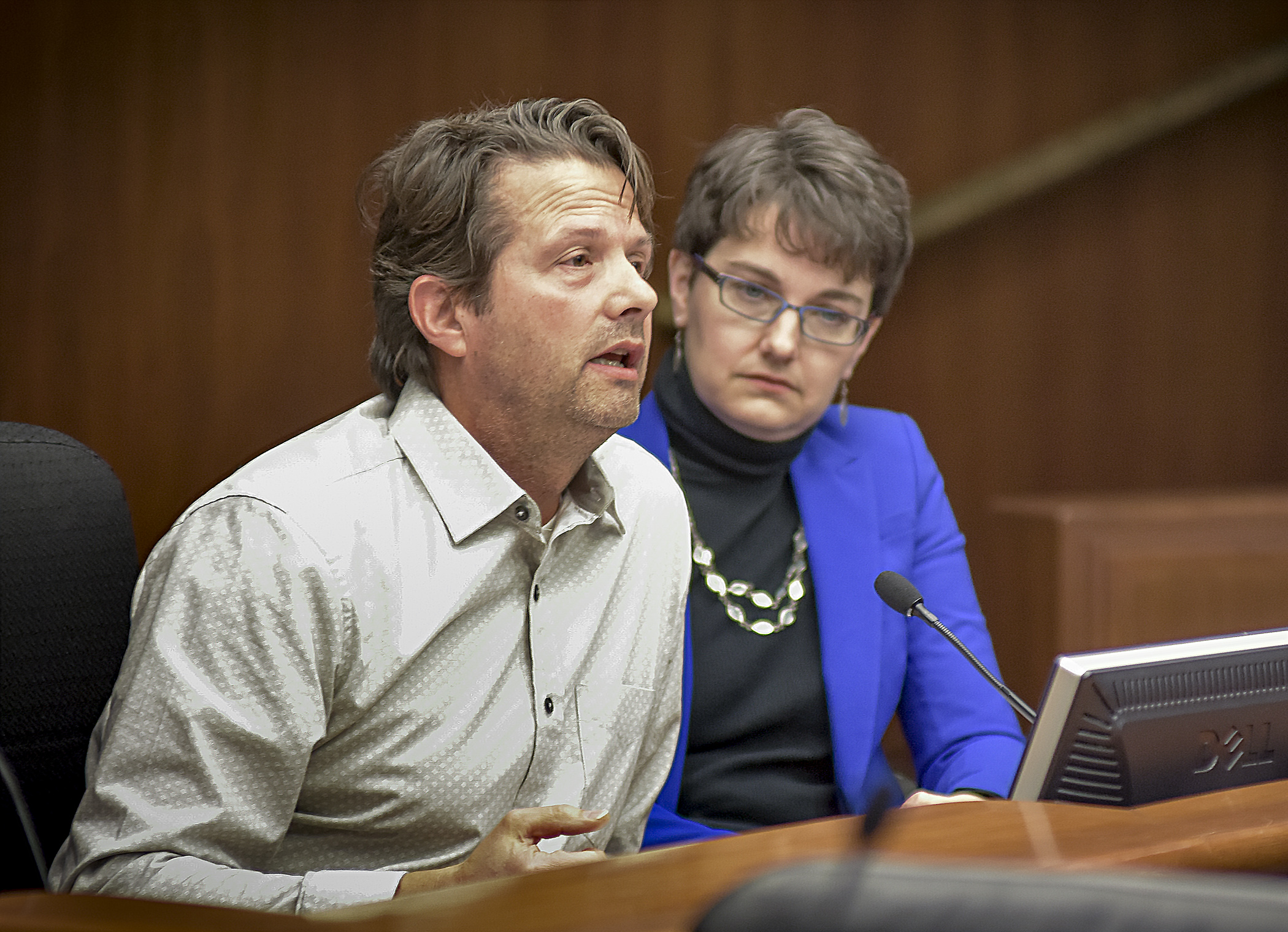Hearing impaired Minnesotans seek to have needs considered in new buildings

Better acoustics and loop technology in public gathering spaces are essential for access by those who are hard-of-hearing. Sponsored by Rep. Tama Theis (R-St. Cloud), HF423 would require designers of state-funded building projects to consider acoustics in their plans and include loop technology that sends signals directly to hearing aids and cochlear implants. It would apply to new construction and renovation projects.
“It’s about making our places easier for folks to hear in,” Theis said.
She said her husband, who incurred hearing loss during his work at construction sites, has trouble hearing when he visits the House Chamber and any big space can acoustically be an echoing mess. “The Rotunda’s horrible,” Theis said.
The House Government Operations and Elections Policy Committee approved the bill Wednesday and sent it to the House Capital Investment Committee. Its companion, SF161, sponsored by Sen. Ann Rest (DFL-New Hope), awaits action by the Senate State Government Finance and Policy and Elections Committee.
Theis said the bill would add little to no cost to new construction and remodeling projects. By contrast, Beth Fraser, government relations director at the Commission of Deaf, Deafblind and Hard of Hearing Minnesotans, said retrofitting existing structures is much more expensive.
Rick Nelson, representing Loop Minnesota, a nonprofit organization promoting loop technology, said people who are hard-of-hearing need audio induction loop systems just as people in wheelchairs need elevators.
“It’s not about volume. It’s about clarity and speech recognition,” Nelson said.
Rep. Roz Peterson (R-Lakeville) asked whether the bill should include broader language to allow for future technological advances. Nelson said loop technology is long-standing and that new developments would adapt to it.
Related Articles
Search Session Daily
Advanced Search OptionsPriority Dailies
Legislative leaders set 2026 committee deadlines
By Lisa Kaczke Legislative leaders on Tuesday officially set the timeline for getting bills through the committee process during the upcoming 2026 session.
Here are the three deadlines for...
Legislative leaders on Tuesday officially set the timeline for getting bills through the committee process during the upcoming 2026 session.
Here are the three deadlines for...